第6章
There was another bookish lad in the town, John Collins by name, with whom I was intimately acquainted.We sometimes disputed, and very fond we were of argument, and very desirous of confuting one another, which disputatious turn, by the way, is apt to become a very bad habit, making people often extremely disagreeable in company by the contradiction that is necessary to bring it into practice; and thence, besides souring and spoiling the conversation, is productive of disgusts and, perhaps enmities where you may have occasion for friendship.I had caught it by reading my father's books of dispute about religion.Personsof good sense, I have since observed, seldom fall into it, except lawyers, university men, and men of all sorts that have been bred at Edinborough.
A question was once, somehow or other, started between Collins and me, of the propriety of educating the female sex in learning, and their abilities for study.He was of opinion that it was improper, and that they were naturally unequal to it.I took the contrary side, perhaps a little for dispute's sake.He was naturally more eloquent, had a ready plenty of words; and sometimes, as I thought, bore me down more by his fluency than by the strength of his reasons.As we parted without settling the point, and were not to see one another again for some time, I sat down to put my arguments in writing, which I copied fair and sent to him.He answered, and I replied.Three or four letters of a side had passed, when my father happened to find my papers and read them.Without entering into the discussion, he took occasion to talk to me about the manner of my writing; observed that, though I had the advantage of my antagonist in correct spelling and pointing (which I ow'd to the printing-house), I fell far short in elegance of expression, in method and in perspicuity, of which he convinced me by several instances.I saw the justice of his remark, and thence grew more attentive to the manner in writing, and determined to endeavor at improvement.
About this time I met with an odd volume of the Spectator.It was the third.I had never before seen any of them.I bought it, read it over and over, and was much delighted with it.I thought the writing excellent, and wished, if possible, to imitate it.With this view I took some of the papers, and, making short hints of the sentiment in each sentence, laid them by a few days, and then, without looking at the book, try'd to compleat the papers again, by expressing each hinted sentiment at length, and as fully as it had been expressed before, in any suitable words that should come to hand.Then I compared my Spectator with the original, discovered some of my faults, and corrected them.But I found I wanted a stock of words, or a readiness in recollecting and using them, which I thought I should have acquired before that time if I had gone on making verses; since the continual occasion for words of the same import, but of different length, to suit the measure, or of different sound for the rhyme, would have laid meunder a constant necessity of searching for variety, and also have tended to fix that variety in my mind, and make me master of it.Therefore I took some of the tales and turned them into verse; and, after a time, when I had pretty well forgotten the prose, turned them back again.I also sometimes jumbled my collections of hints into confusion, and after some weeks endeavored to reduce them into the best order, before I began to form the full sentences and compleat the paper.This was to teach me method in the arrangement of thoughts.By comparing my work afterwards with the original, I discovered many faults and amended them; but I sometimes had the pleasure of fancying that, in certain particulars of small import, I had been lucky enough to improve the method or the language, and this encouraged me to think I might possibly in time come to be a tolerable English writer, of which I was extremely ambitious.My time for these exercises and for reading was at night, after work or before it began in the morning, or on Sundays, when I contrived to be in the printing-house alone, evading as much as I could the common attendance on public worship which my father used to exact on me when I was under his care, and which indeed I still thought a duty, though I could not, as it seemed to me, afford time to practise it.
When about 16 years of age I happened to meet with a book, written by one Tryon, recommending a vegetable diet.I determined to go into it.My brother, being yet unmarried, did not keep house, but boarded himself and his apprentices in another family.My refusing to eat flesh occasioned an inconveniency, and I was frequently chid for my singularity.I made myself acquainted with Tryon's manner of preparing some of his dishes, such as boiling potatoes or rice, making hasty pudding, and a few others, and then proposed to my brother, that if he would give me, weekly, half the money he paid for my board, I would board myself.He instantly agreed to it, and I presently found that I could save half what he paid me.This was an additional fund for buying books.But I had another advantage in it.My brother and the rest going from the printing-house to their meals, I remained there alone, and, despatching presently my light repast, which often was no more than a bisket or a slice of bread, a handful of raisins or a tart from the pastry-cook's, and a glass of water, had the rest of the timetill their return for study, in which I made the greater progress, from that greater clearness of head and quicker apprehension which usually attend temperance in eating and drinking.